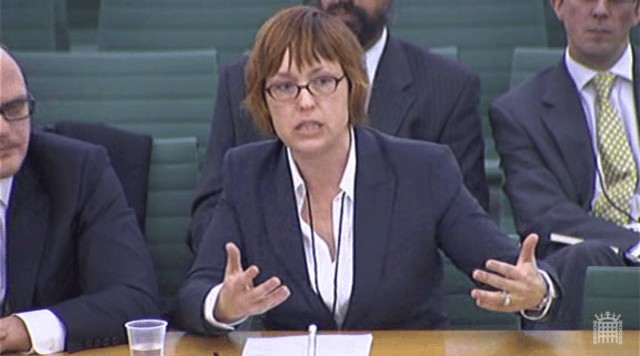
Google (NSDQ: GOOG) executives got a rough ride from a House Of Commons committee on Monday, when they declined to systemically filter law-breaking web pages from search results.
Associate general counsel Daphne Keller told the joint committee on privacy and injunctions that algorithmic filtering-out was technically feasible but not on the company’s policy agenda.
The committee had called Keller along with with public policy heads from Google (DJ Collins), Facebook (Lord Allan of Hallam) and Twitter (Colin Crowell).
MPs drew their attention to the case of Max Mosley, who won a privacy claim against News Of The World for having filmed him engaged in sex and who now spends his time filing individual takedown requests so that Google can hide remaining privacy-breaching web pages from search.
“If a user has their privacy violated by a web page and wants that removed, we have a public-facing web form that they use to let us know,” Keller protested to the MPs. “We have removed hundreds of URLs in this case so that they no longer show up in our search results.”
But MPs believe that, since the privacy ruling has already been made, Google should act pre-emptively to automatically remove such results – for example, using image matching. “Is it technically feasible?,” one asked.
“I don’t dispute that someone could perhaps build something,” Keller conceded. “My policy point is that doing so is a bad idea. Ultimately, the decision about whether something is unlawful is something for a human to make.”
Despite Collins’ softer approach, Keller’s testimony was like a red rag to the committee’s bulls, many of whom regard such matters in aggressive, black and white terms.
“I found your earlier answers totally unconvincing,” one, Ben Bradshaw MP, told Keller. “99.9 percent of people find that illegal content through your search engine and you could stop that from happening.”
Another, Lord Myners, told Collins: “You’re not answering my question, and that’s been a practice of you and your colleague throughout this discussion.”
Brian Mawhinney MP told Keller: “You’re extremely hard to pin down – you have ducking and diving down to a fine art and I congratulate you.”
Embarrassing rudeness to Google, Twitter & Fb and ignorance about internet from my ‘colleagues’ on joint privacy & injunctions cttee today
— Martin Horwood (@MartinChelt) January 30, 2012
The hearing came a week after the companies also testified to the parallel Leveson inquiry in to press standards, and follows the publication of Google’s new privacy policy and Twitter’s censorship policy, in which it has made a new commitment to filter out tweets according to the laws of lands in which it operates.
With that policy in place, Twitter’s Crowell, too, was looked toward by committee members to commit to automatic pre-filtering of illegal material. Ben Bradshaw asked him if the policy meant Twitter would strip out UK tweets that broke a privacy injunction, as in the case of Ryan Giggs last year.
But Crowell, though he made a general commitment to this, tip-toed around the area, saying that Twitter would work through such issues on a “case-by-case basis”: “It’s a hypothetical. I wouldn’t know how to answer that. A determination would need to be made about the applicability of that to services such as our own.”
Bradshaw’s point was that, in the Giggs case, an injunction was delivered to newspapers and should be served on Twitter in the same way.